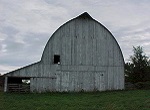Fear of Rural Zoning Shouldn't Prevent Planning
Last Reviewed: July 13, 2025
In many parts of America, the idea of rural zoning is a non-starter. In my home state, farmers want no part of that. They see it as needless regulation and an expensive and unnecessary source of aggravation. On this page, we maintain that in some instances, this is a reasonable viewpoint. As described below, we think that even when there is no zoning in your area, strategic planning for a rural area makes a great deal of sense.
Yet there are some important reasons that rural zoning might make sense for your community. Before you discount that idea totally, read the whole page.
Often folks confuse the terms zoning, planning, and building codes. If you have any doubt which is which, click on zoning or planning in the navigation menu to be clear on what topics each one addresses. That will help with the rest of the page.
Rural Locations Can and Should Plan, Even If They Reject Rural Zoning

Zoning is a set of locally enacted rules about what can and cannot be located on the land. Zoning also may provide rules about placement of buildings on a parcel of land, and all sorts of other things.
Although many states require that agricultural land be exempt from zoning regulations even where other parts of the area are subject to zoning, there seems to be an overall distrust that this provision of the law can be enforced. And some states require all of the land in a township, county, or town that has zoning to be assigned a zoning district.
Below we will cover some reasons why rural parts of your area might receive some positive benefit from zoning. But for the moment, let's assume that the rural people make their voices heard loud and clear, and there just will not be any rural zoning where you live.
Our word of advice for you is that it is still wise to engage in some planning ahead. Just because "planning and zoning" seems like one term in some parts of the country, that's no reason to think it's true.
Planning is simply the opposite of not planning. Can you imagine saying let's have a big wonderful wedding sometime? The analogy is a really good one, because if you persisted in thinking that thought and never actually planned the big wedding, you'd either end up with a very small wedding that doesn't do justice to your dreams (or those of your bride), or more likely you'll end up with no wedding at all!
Many people think that "plans," meaning planning documents that contain a narrative explaining existing conditions, alternatives, and an ideal future state, are always long and complex.
We agree that a plan should be written down just so you don't forget or conveniently distort it, but we also insist that it can be very short and simple. It need not contain elaborate descriptions, theory, and stuff that it's so very expensive to hire consultants to generate.
What it should contain is the summary of decisions made by all who will participate in the exercise of the community really sitting down and having a dialogue about its future, what citizens would like it to be, and what steps will be required to make it happen.
I once facilitated the development of a dynamite two-page plan. It was a dynamic vision, it was expressed crisply and succinctly, and the finished product consisted of bullet points. The bullet points were written in the form of complete sentences that sound as if the ideal future state already had been reached.
For example, the bullet points might have been:
• At least 50% of the high school graduates are living in the community ten years after graduation.
• The town contains a 24-hour child care center.
• The old mill has been recycled into a restaurant, shopping destination, or other productive use.
If a community were to implement this plan, it would completely change the way many things operate. For instance, the town might have to pass an ordinance setting up a tax increment financing procedure to make the mill redevelopment come to pass.
The community might have to create a serious number of new non-agricultural jobs to have their young people return to town after college. They might have to actually recruit one of their own to learn to be an entrepreneur to develop the 24-hour child care center.
The 24-hour child care capability might have to precede the development of some of those new shift labor jobs that the younger adults will fill.
Rural Zoning to Preserve Agriculture
Now that we hope to have convinced you to do some strategic planning even if you hate the idea of zoning, let's give you two reasons that you might want to reconsider this staunch opposition. These are: (1) You can actually use zoning to help preserve and support agriculture, and (2) You can use zoning to protect you against some large-scale future development coming in and taking advantage of the situation to create their own rules of behavior. Let's talk about these in order.
For those of you who live in a state or regional environment that basically requires you to zone some or all of your rural areas, here is how to begin to feel better about that.
Rural zoning can be used as an active agricultural preservation tool if you choose. In other words, rather than imposing new regulations on agriculture, you can map all or most or your township, county, or village as an agricultural zoning district that basically requires that all activities be agricultural.
You then could provide that no land zoned agricultural can be sold for urban development, and no retail uses other than home-based and agriculture-related sales operations are permitted. Perhaps you could allow the seed salesman to display a tiny sign this way.
You can say that the only additional uses allowed are farm owner or laborer housing, the "accessory uses" to farm housing (garages, sheds, and so forth), and agricultural buildings.
You also could require that houses in adjacent zones be set back from the agricultural property line by a particular instance. This might prevent some of the suburban-rural conflict, such as the common "roosters are making noise at 4:00 in the morning" complaint.
How Zoning Could Contribute to Better Quality Rural Development
Now let's turn to the second reason listed above that you might want rural zoning after all. You want to prevent poor quality development if and when a large-scale business or development wants to locate in your area. You might like to use zoning simply to give a minimalist framework for good quality rural community development.
For example, would you like to set up a minimum lot size, a minimum setback from agricultural uses, a maximum building size, a maximum number of employees, a maximum amount of parking or percentage of the total lot that is parking?
To be honest, most communities don't have the nerve to set up in advance the terms for rural economic development, or urban economic development either, if you're keeping track.
But if you do so, you are in a much stronger position when Mega Farm Supply comes along, people are so excited because they bring much-needed jobs and desirable shopping, and then you are in a weak position to negotiate about the details of the proposal.
If you have enacted these regulations, you can legitimately say to the Mega executives and lawyers that you wrote these rules before they came to town, this is what you want and would like to see, and wouldn't they really like to start off on the right foot in their new location?
The human response to that kind of approach may kick in, and they might give you much more of what you want than you would be likely to have secured otherwise. Indeed, with no zoning, they could simply start to build before you knew what was happening, especially if you don't have a building code either.
We think that's a good argument for rural zoning. But you could object that you have no idea where Mega Farm Supply might want to build, so you wouldn't know how to do the zoning map even if you wanted to. That's where we have another idea for you to learn about, the floating zone.
The Floating Zone: A Recommendation for Communities That Want Businesses Other Than Agriculture
A floating zone is defined as a set of zoning
district rules and regulations that are adopted as a zoning ordinance
amendment and then "float" above the community, meaning they are not
mapped anywhere in your town or county at the time the regulations are
enacted.
In a separate process that might be many months, years, or decades later, someone submits an application for a floating zone permit at a particular location. Then if the application meets the original criteria for the floating zone that should have been listed in the original zoning regulation amendment, the floating zone "lands" or "is brought back to earth," at a particular location.
The important legal principle is to avoid having the action of granting the floating zone permit appear to be a spot zoning.
That's why listing the standards or criteria for granting the floating zone permit is important in the first step. I don't think it's wise to grant the floating zone permit just a few months after enacting the floating zone regulations. That leads to the perception that this is what you intended to do all along and that you were just playing games.
Now let's see how this applies to the rural zoning situation.
You could enact a very pro-agriculture zoning code, about ten pages long, mostly consisting of definitions. Then zone everywhere in your county or township Agricultural. In A Agricultural zoning, everything is permitted as long as it is a common agricultural activity and/or related to the residential use of the farmer or farm laborer. There are no rules about setbacks, heights of silos, how pole barns have to be built, or anything else.
But then at the same time, or anytime later that you decide, you also name and describe a floating zoning district, which consists of anything you desire and have planned for as your Economic Plan B, or your plan for an orderly transition to urban uses. So you could have a "Rural Commercial Center" zone described and enacted as a floating zone.
The ordinance would list the land uses that would be permitted there, regulate anything you would want to specify about the setback from agricultural land, the parking requirements, the height, the aesthetics or signage, and so forth, and describe the criteria that have to be met before the zone may be established.
The establishment of the floating zone would occur either with the original rural zoning ordinance, or it would be an ordinance amendment. Like all amendments, whether to regulations or the zoning map, this would require approval by your selectmen, aldermen, town council, town meeting, county commission, or whatever your governing body may be called.
Then at the time when the market responded to the need for some small commercial uses, you would receive an application for the floating zone permit.
You still would have the normal public hearings connected with rezoning, as well as a vote of your governing body, before the floating zone is allowed to land on a particular piece of property.
Similarly, if you've identified some target industries that you think would be compatible with your rural way of life and add to your community's income, write regulations for a floating zone that would permit the industry you envision.
The Community Dialogue to Determine What to Be When Urbanization Is Nearby
So far we have discussed the desirability of a simple plan even if zoning is just plain not going to happen politically where you live, and we have talked about two reasons and ways that rural zoning might be advantageous. But we haven't really talked about the dilemma that drives much conversation about zoning in rural areas.
The problem is that some farmers want to have it both ways. They
want to be exempt from any and all regulation, including rural zoning,
during the time they are farming. But if urban development comes
out their direction, they certainly want the right to sell their land
at top dollar. And the primary way that commercial land value is
distinguished from residential subdivision land value in the U.S. is
through zoning.
OK, how does the community move forward when this is what most of your farmers and voters think? The government definitely should assure that there is a broad-ranging community dialogue on that particular topic. Urban-rural conflicts definitely do arise as the urbanization process comes along.
Below are the questions to ask.
• Is preservation of agriculture a community goal? If so, why? Is it profitable? Is it the only thing the people have experience in doing? Are you interested in more interface between the community and its farmers, for the sake of local food production?
Do you have a new and profitable ethanol plant nearby that needs to be fed? Do you live close enough to a major city that "truck farming" of food products is profitable?
How do you decide whose land remains agricultural and who gets to sell to a developer? If your answer is the "first come, first served" answer, then you're going to be leaving some haphazard development for later generations to try to correct. I think if you're in the path of land development, you should start now to develop some gentle rural zoning.
• Is it the actual agriculture
that's your goal, or is it a "rural way of life"? If it's the latter,
what does that mean to the community? Does it mean slow pace, friendly people,
sense of safety, sense that we are insiders who have a tight-knit
community, or fear of change? If you want small schools, you might be interested
in our meaty school site selection page.
If the goal is the rural way of life, and that is the consensus of the community, you truly need to write a plan to articulate that vision. It could be one page long, and you'll probably argue about the words a long time. But this might be an argument worth having.
That one household that disagrees and sells out to Big Discounters can place a serious obstacle on the path to that rural way of life.
Also if you decide that the "rural way of life" is your goal, what is your economic development plan? Can agriculture provide the living you all need or want? If so, what is your Plan B when markets crash, credit crunches, land values go through a boom or bust, inheritance laws change, and so forth?
• If you need industries other than agriculture to provide employment, part-time job opportunities, and choices for youth, what industries would be suitable and appropriate? (We're using the word "industry" in its economic sense, meaning all methods of earning a living.)
It's time to become very serious about entrepreneurship support or economic development in general.
When you have an economic plan that you feel will allow you to preserve a rural way of life while still requiring some back-up plans for additional income, you may want to enact some rural zoning for sure. If you don't, how can you guarantee and demonstrate that you do indeed have available land with appropriate utilities and amenities for the industries you court, or for home-grown entrepreneurs to succeed?
• Is your true goal simply preservation of a rural landscape? If so, you need to learn about conservation subdivisions, which can be created with or without zoning to force the issue.
In clustered or conservation development, a few houses are grouped relatively close together, subdivision-style almost, perhaps in a semi-circular pull-out area off the main farm road. However, the remainder of the land is owned in common.
Although this is the basic conservation subdivision idea, it's also very possible that the agricultural land or open space could be individually owned as well. You might have individual lots for the homes and then individual agricultural lots, which would be deed restricted (or not) to be sold with the residential lot.
If you wanted to do it this way, you could avoid what essentially would amount to condominium-style covenants or deed restrictions. These are relatively expensive legal documents to produce, buyers don't understand them, and they represent unnecessary complexity for a small rural development.
The conservation subdivision idea not only is good for the land, animals, water quality, and fish, but also creates that bucolic look that you might envision for your community.
This is highly appropriate for semi-rural locations, such as some parts of New England, where there's a sense of loss because rural landscape is disappearing, but yet people actually want urban jobs and income.
Determining precisely what, if anything, you want to preserve of your rural heritage will lead to the right policy decisions.
Summary of Zoning and Planning for Rural Areas
I know this is hard to think about for many rural communities. Many of you resist rural zoning completely, and on this site we've just said that's fine if you expect to always be agricultural, with only a couple of service stations at the main intersection. If your agricultural and economic model is adequate, truthfully you don't need rural zoning.
However, please divide planning from zoning. Please plan.
If you don't, you may pay a price someday. Either some quite unwanted large and inappropriate intrusion on your rural lifestyle could invade, including those awful corporate livestock operations. Or if you're just hoping and dreaming that suburban development will come your way and you'll make a pile of money, remember about the big wedding. If there's no planning, there's no big wedding.
These Are Also Relevant to Rural Communities
- Making and Keeping a Good Community >
- Zoning and Codes > Rural Zoning
Join GOOD COMMUNITY PLUS, which provides you monthly with short features or tips about timely topics for neighborhoods, towns and cities, community organizations, and rural or small town environments. Unsubscribe any time. Give it a try.




